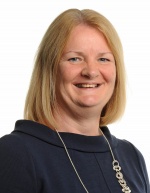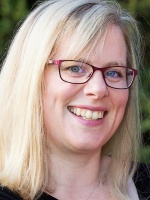Staff Wellbeing
The Institute of Applied Health Sciences strives to have a positive ‘people culture’ by providing opportunities for individuals to flourish and achieve their full potential for themselves and for the University.
The Institute is committed to becoming an exemplar for fairness and equality of opportunity for all. In addition, we wish to support the continuous staff development of our staff and students.
Staff Development
The Institute of Applied Health Sciences actively wishes to promote, encourage and support the continuous professional development of its staff and PhD students. It fully endorses the University’s current policies for preventing discrimination.
- Remit
-
The Institute of Applied Health Sciences (IAHS) actively wishes to promote, encourage and support the continuous professional development of its staff and PhD students. We fully endorse the University’s current policies for promoting equality, diversity, and inclusion.
IAHS staff development activities are supported by the Staff Development Group (SDG), which meets up to six times each year. The SDG remit includes responsibility for: reviewing and supporting the career development and training needs of its staff and PhD students and responsibility for allocating the IAHS staff development budget. The fund is available for all roles. The SDG remit will be posted on this website and will be reviewed every two years and updated accordingly.
Induction Process
It is important that new members of staff and postgraduate students receive a thorough induction, both at a general and local level so they feel engaged with the organisation and their immediate work environment.
For staff, the process includes:
- receipt of a welcome letter prior to starting giving details of where to report to, and at what time, on their first day
- receipt of an up to date induction pack on their first day*
- identification of an informal buddy/point of contact to help with settling in
- identification of their academic line manager
- Attendance at a University of Aberdeen staff induction day which are held regularly throughout the year
For postgraduate students, the process includes:
- receipt of a welcome letter prior to starting giving details of where to report to, and at what time, on their first day
- receipt of an up to date induction pack on their first day*
- identification of an informal buddy/point of contact to help with settling in
- identification of their academic supervison
- Attendance at the University of Aberdeen Post Graduate Research School induction events
- School-level and Institute-level induction events, which are held twice a year to accommodate students starting at different times of the year
The minimum requirement (in terms of documentation) that should be included in an induction pack is as follows:
- IAHS handbook
- Health and Safety policy (including University smoking on Foresterhill campus memo)
- Site maps (Foresterhill, Old Aberdeen)
- Annual leave sheet
- Staff phone/e-mail list (may be local to research group with link to IAHS list)
- Link to IAHS/University research governance and quality assurance policy
- University policies and procedures (e.g., Working here link, including mandatory trainings, expenses, payslip )
- Appropriate IT and Data Access
- Staff development group remit document
**Please note that research groups may include additional documents as appropriate. A confidentiality clause is contained within a new member of staff’s university contract, however short–term research students (e.g. elective students) may be asked to sign a research group specific confidentiality agreement.
- Committee 2023 -2024
-
- Mr Dolapo Ayansina – Research Fellow
- Dr Smita Dick - Research Fellow
- Dr Caroline Franco - Lecturer
- Miss Kelly Gray - Administration Coordinator (contact for information)
- Miss Jemma Hudson – Research Fellow
- Professor Amanda Lee – IAHS EDI lead
- Dr Patricia Norwood – Research Fellow (Comittee Chair)
- Dr Imran Omar - Research Fellow
- Ms Rebecca Parr - Assistant Study Coordinator
- Dr Daniel Powell - Lecturer
- Dr Samantha Wileman – Research Fellow
- Staff Development Group Fund
-

The Institute allocates a small amount of funding to support staff development activities and IAHS staff and PhD students can apply to the SDG for funds if applications for external funding, either through their research grant funding body, Principal's excellence fund or other sources are unsuccessful. The criteria for applications can be found in the application form below. Conferences and courses attended should be in line with the objectives set at the Annual Review. Applications will be assessed by two SDG group members not belonging to the applicant's research group. Successful applicants will be expected to submit a short (1 A4 page) report to the SDG within two months of the conference/course. Reports will be available to view if requested.
So far this year (2023-24), the Staff Development Committee have funded a number of applications to support staff attending conferences such as:
- European Health Psychology Society Conference
- The 44th Conference of the International Society for Clinical Biostatistics
- What Works Climate Solutions workshop
- European Health Economics Association Conference 2024
- EUROGIN 2024
We have also supported applicants attending training courses such as:
- UKTMN How to be a good trial manager
- Survival Analysis
- CCAIM AI and Machine Learning Summer School
- Learning with the book: an introduction to qualitative research methods for health research
- Training opportunities
-
Staff progress in career terms through academic and professional experiences and qualifications. Career paths differ according to discipline area, qualifications, stage in career and the nature of contracts and funding. At every stage of the pathway staff should feel a level of ownership of the process and procedures.
A successful career path should blend institutional and individual development plans so that the needs of all are met. Career plans require senior staff and designated academic line managers to promote scholarship and integrity in teaching and research. Such career development is formally noted in the Annual Review.
This is an opportunity for two-way feedback and reflection on the achievements of the past year. Objectives and training needs are identified and set for the next twelve months. Relevant SMART (Specific, Measurable, Achievable, Realistic, Time-bound) goals and defined timescales should be established during the review and will be supported by training, mentoring and regularinvolvement in professional activities.
The University carries out an Annual Review process, usually between May/September (you will receive information via email). Goals should be reviewed six months after the review meeting.
During the annual review potential training activities are discussed and these are key elements of an individual's career plan. Identified training needs are recorded and agreed with the designated academic line manager during their Annual Review Specific details of any training needs should be listed, and generic statements (e.g. statistics training) avoided.
Many of these training activities are available within the University via the Centre for Academic Development (CAD). Participation in external courses will be considered if opportunities do not exist within the University and if the training is of benefit to both the individual and Institute.
At the end of the Annual Review period, the SDG will receive an anonymised copy of the Individual Development Plan. These will be collated and reviewed by the SDG to identify common training needs.
The SDG has funded several events recently. Information regarding appropriate training courses can be found on the University Staff Development page along with details of the University’s formal mentor programme which is open to all staff. In addition the IAHS hold various events and seminars throughout the year which maybe of interest to you.
- AURORA
-
AURORA

representation at this level.
Aurora is managed by Advance HE and is a women-only programme which seeks to develop core leadership skills in women who aspire to reach senior levels. Further information can be found on the AURORA website.
Women who are interested in this opportunity will be invited to apply by means of a short application form which will be emailed to Institute members in the autumn of each year. Applicants should be Grade 8/Senior Lecturer or below and be able to attend all programme dates.

“I was moving into leadership roles and the number of staff I was line managing was growing.
I applied for the scheme to receive advice/support and form networks. It fully met my expectations, and I got a lot out of the scheme on a personal level.
I got lots of hints and tips about managing a team including the acknowledgement that one size doesn’t fit all!”
Dr Lucy Thompson, Senior Research Fellow attended 2019/2020

“There is something quite powerful about being in a room of around 250 women all with the same broad aims. None of us in my cohort realised it would be such a large gathering.
Having time and space to focus on you and your career development feels like a luxury and it’s a good reminder to try to make time for this in one’s everyday working life.”
Dr Amudha Poobalan, Senior Lecturer attended 2019/2020

Dr Rosalind Adam, Senior Clinical Lecturer attended 2018/19

“Aurora exceeded my expectations. I gained practical insights into how to present myself and my research ideas. I learned how to manage challenging professional interactions and relationships and how to approach networking strategically. There were helpful tips on time management, prioritisation, and work-life balance. I heard from various senior leaders about the challenges they had faced as their careers progressed, and how they managed and overcame adversity.”

“I was keen to overcome imposter syndrome in the early years of my senior clinical lectureship and to be inspired by stories of women excelling in leadership roles. It exceeded my expectations when it came to hearing success stories from other women who, sometimes unexpectedly, found and ran with leadership opportunities. The protected time away from work and even the experience of travelling with fellow-Aurora delegates was great for thinking time and relationship-building.”
- University Staff Development
-
The University is dedicated to supporting personal, professional and career development of its staff and postgraduate researchers. You can find more information here.
